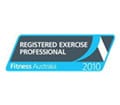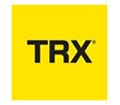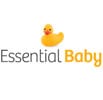Don’t want that bread starter but you can not help yourself? You don’t want to fill up before the main course? Bread doesn’t fit into your diet? So here is 5 great tips to overcome that bread starter!
Video Transcript
Good morning. It’s Cameron from Core Health Coaching. Hope you’re having a good day so far. Look, I had a question from one of my clients this week that I just wanted to put out on Facebook Live.
She’s really struggling with this particular temptation that I wanted to help her with. The question that she asked me was, “How do I resist temptation of bread starter before dinner?” So look, I’ve got five tips for you. I really appreciate the question, Laurelle So, hopefully I do this justice for you and you’ve got some real value for this.
Tip 1 Planning
Now I don’t want to debate whether or not it’s about why you should have bread or not have bread beforehand. This is actually just how to resist the temptation. So the five points I’ve got for you, the first one is around planning. Is that if you know that you’re going out for dinner, definitely putting some pre-thought into saying, “Okay, well, look, I’ve got this temptation happening.” So when you’re actually thinking about that, you’re prepared for the temptation. And then, that way you can sort of start thinking about some of the strategies. But just even thinking, “Hey look, I’ve got some bread, I’ve got a bit of a challenge tonight. I’m not going to have this bread starter.” is really putting yourself in a really good mindset around saying, “Hey look, I want to resist this.”
Also, then, a little bit of reassurance as in like, “Hey, look, I can actually do this.” So that you’re giving yourself a little bit of confidence to be able to address it. Now look, some advanced techniques around that might be doing some visualisation. You’re picturing the bread through there, you saying no, but at the same time, look, you need to have a little bit of planning with that. So that’s the first point.
Tip 2 – Purpose
The second point that I’d like to mention is just why you’re actually doing it. Now again, I’m not talking about your individual reasons why or why not to. But it’s more about saying that, “Okay, the purpose of me not having bread starter is something.” So Lorelle, it might be, for you, could be about the food sensitivity. So if you’ve got some gluten sensitivity is saying, “Okay, I don’t want to have bread beforehand because it doesn’t fit in with my sensitivities.” Or it might be around weight loss. It doesn’t fit into a paleo-based diet. Or something along those lines is then saying, “Okay, the reason the planning is about saying, ‘Okay, then. Hey, this is the reason why I’m not actually going to have this.'” So then you’re really solid in regards to your resolve and saying, “Okay, I’m not having it because of this.”
Now, the other component to that is also doing the opposite. So that’s kind of like a bit of a carrot approach and saying, “Okay, I’m not having this bread because of this.” But the stick approach is. “What happens if I do have it?” So it might be you disappoint yourself for having it, or it might be the symptoms of food sensitivity. So you might have a pain in your gut, you might actually then sort of start to, the sort of things that you get with your food sensitivities. You might get a rash with that. So, all those sorts of things is, again, building up the purpose of why you’re not actually having it. So the carrot and the stick approach works really well with that.
Tip 3 Food Strategy
The third point that I’ve got for you, as well, is just in regards to your food strategy. Now, one of the things that we teach our clients is definitely having smaller meals over a regular basis so you’re not hungry. Now, if you’re hungry and you show up to dinner, it’s going to be really, really difficult to actually stop any sort of temptation for any food. So it’s feeling natural. You’ve got a starving person and then you actually offer them food and then you sort of say, “No, I don’t want it.” Well yeah, you do. So if you show up and you’re not hungry all of the sudden, then what’s happening is it’s easier to say no.
Now, so that means that like an afternoon tea, and we’re not talking large afternoon teas, they’re talking about, some foods there that keep you full so that you’re not hungry. And I’ll tell you what, that’s really powerful strategy, just full stop in regards to our clients, showing up and being led by their hunger. So if you’re showing up to dinner and then all of a sudden you’re not hungry, to the point where your temptation takes over. That’s a fantastic way of, “I’m saying no.” Straight up, it’s real easy.
Tip 4 Remove the temptation
So we’ve got the planning, we’ve got the reason why you’re doing it. The third one’s around the food strategy. And then, the next one then is around removing the temptation altogether. So there’s two points in that one. First one, if you show up to dinner and there’s a bread roll, sort of like a dinner roll on the side plate, straight up. Is then actually move that to someone else. Offer it and say, “Does anyone else want a second bread roll?” All of a sudden you’ve made a friend. And then you’ve got a great conversational piece. But at the same time it’s don’t have it sitting in front of you all night. That’s just not going to work.
So the second one, then, is if it’s not like the bread roll, like on the dinner roll before that dinner, is then like if you’re ordering some starters is thinking about another starter. One of the most successful strategies that we have to change behaviours is just to switch something. If you’re going to give up coffee is there’s a whole ritual with having coffee. It’s like that hot mug and sort of relaxed, and just putting it in your hands, it’s taking time to relax.
So then to take that away from someone is really difficult. So don’t take it away. It’s just swap it and then have a cup of tea. Same thing in regards to this is that if people are ordering breads is thinking, have a look at what else is on the menu for some different starters, so that you’re not then having those bread options. Now depending upon what your food strategy is, if you’re talking about a protein-based type, you might have a cheese platter. Not going to argue the benefits and disadvantages of that, but at the same time is that sort of saying there’s other options on that menu to have different starters.
Any platter. Pass … Geez, I’m struggling on that. But a platter that’s just not necessarily with bread through there. So there are the two points that I wanted to mention through there. It’s just around removing the food, but then also switching the strategy. That switching strategy is really powerful.
Tip 5 Discipline
The last one that I wanted to mention was really around the discipline. And that’s what most people would say, is that when you’ve made a decision, “Hey, I’m not going to have bread for dinner.” As in just saying no. Now it’s a little bit flawed and most people would actually will show up and say, “Yeah, I should be able to say, no.” But if you haven’t trained for saying no, it’s not going to happen. When you come in and you do gym work is, we don’t push to do 100 kilos and get you to squat that straight away. Why? You need practise.
So give yourself opportunities where you’re doing practise on smaller pressure situations. Sitting in front of a whole group of people with the food that you love the most that you want to give up but you can’t. That’s a high pressure situation. So you just need to practise discipline and other areas of your life. So you might have one day where you don’t have coffee, or a packet of chips, or something along those lines. And then do two days, and then three days, work your way up to a week. So then all of a sudden you get disciplined at saying no in all parts of your life.
Now, there’s a really great video that I’ll post https://www.facebook.com/Core.Health.Coaching/videos/1610851632320977/?hc_location=ufi
and it’s about this army general, and he’s asked, “What is the most significant lesson that you can teach your recruits?” And he said, “Making a bed.” And I love this, is they’re saying, “Well, what’s making a bed first thing in the morning got to do with the army?” And he says, “But it’s the first thing you do and all of a sudden, it’s a discipline that you do. And then all of a sudden you’re starting your day off, right.”
So that’s a trained skill. Don’t think discipline is something that should just come to you naturally. You’ve got to train it. So getting to a particular point, and you haven’t got discipline in other areas of your life, how are you going to say no? It’s very difficult. So just give yourself a little bit of opportunity to train for those sorts of things. And then you will build that discipline muscle up.
Hopefully that’s actually helped you, Laurelle. Those are the five points that we went through. The first one, a little bit of planning. Second one is why you’re doing it, but also the reasons what happens if I do do it? The third one around your food strategy. Don’t show up starving. The next one, then, is removing the temptation. So we’ve got two of those is getting rid of it out of right in front of you. And the second one then is swapping it for something else. And the last one, then, is actually build up your discipline muscle.
Now, obviously, a lot of those things happen before the event. So you obviously need to do a little bit of pre-thought. Hopefully that helps Laurelle. Thank you so much for the questions. Look, if you’ve got any other questions, more than happy to answer those, happy to give you my insight. I’m full of it. Just ask me. So it’s something I say quite a lot. I’ll add the video at the end of this. If you’ve got any questions, love to help you out. Have a great night if you’re having dinner and see if you can resist the bread starter. All right. See you later.
If you are wanting more information like this, download our FREE ebook “The Truths of Effective Fat Loss”
Cameron Corish has been caring and achieving results for the local Wishart, Mansfield and Mt Gravatt community for over 10 years. Together with the Core Health Coaching Team, he takes a multi-disciplined and holistic approach to health and fitness addressing the physical, mental and emotional aspects of one’s health.
Ready to feel and look your best? Come in for a FREE chat and see how we can transform your life. Call 0406 451 907 or email Cameron at cameron@corehealthcoaching.com.au

















Speak Your Mind